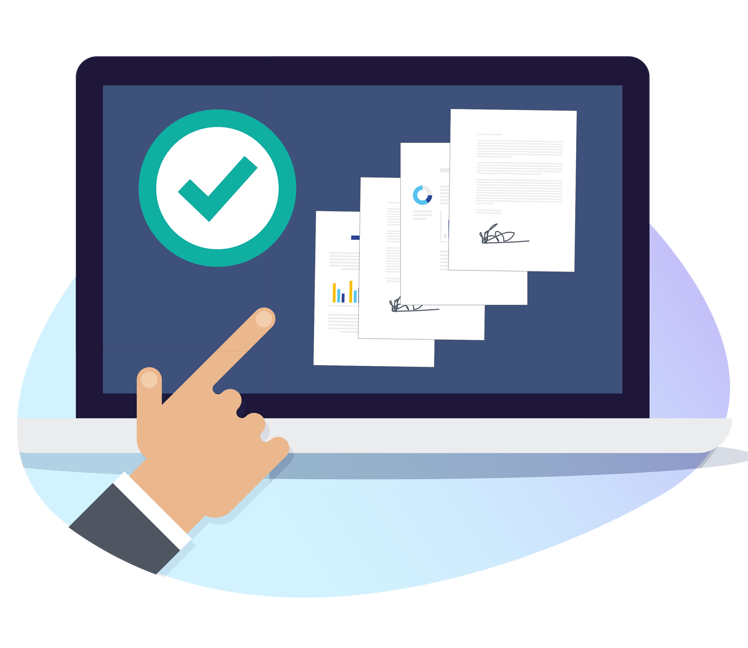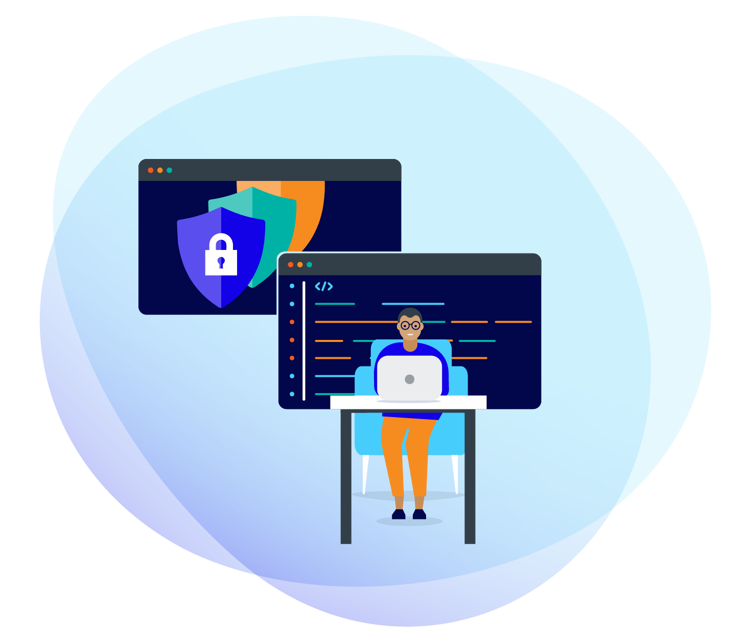Checklist for law firms
Law firm professionals are continually evaluating new processes and technologies to help their teams be more efficient, productive, and secure. One important area of focus is document and email management – enabling users to save, search, and work effectively with the documents, emails, and messages that flow through the firm every day.
Firms are increasingly finding out that general-use storage solutions do not meet the specific requirements of the legal industry. For sensitive legal documents, you need a bespoke, cloud-based document management solution (DMS).
According to the ILTA 2023 Tech Survey, 51 percent of responding firms already have their DMS in the cloud. Another 27 percent plan to migrate to cloud over the next 12 months (or longer). Only 21 percent had no plans to migrate.

Ask these 12 questions when evaluating document management vendors
When you invest in a legal DMS, you want more than software, you want a partner, and that's why it's so important to choose wisely. You're looking for a partner who offers a modern platform and the most advanced security technology, but who also understands a law firm's unique requirements and delivers what you need.
Finding the right partner, the one who best meets those needs, starts with asking the right questions.

1.
How does document management help make my firm more organized and productive?
A modern legal document management system (DMS) works the way legal professionals work. It organizes and structures information so users can:
- Find the content they need
- Collaborate efficiently
- Leverage existing work product
An effective DMS should make it easy to save documents and emails together, in the proper context, organized around the relevant matter, client, or transaction. It should also simplify work by reducing the number of clicks to get work done and be intuitive so the user can complete tasks quickly and without friction. A modern DMS should also integrate seamlessly within the applications lawyers use every day.

2.
How does a legal DMS differ from legal transaction management solutions? What additional functionality does it provide?
The two applications play different but complementary roles in a law firm. Legal transaction management software is designed to enhance human efforts by:
- Providing a structured workflow around specific tasks
- Including importing your closing checklist and documents
- Identifying who signs what, tracking signature pages
- Creating signing packages
This enables transactional lawyers to automate routine manual tasks and reduce errors. The purpose of a legal document management system is to ensure that high volumes of sensitive information, much of it contained in documents and emails, can be efficiently managed and easily searched, shared, and collaborated upon while remaining secure, governed, compliant, and protected from any potential threats.

3.
Can the solution manage emails and chats as well as documents?
A modern DMS must enable legal professionals to manage the high volume of sensitive emails or chats they work with by saving communications automatically in the correct location, so their content is searchable and secured.
Legal users need to see documents, emails, and chats together and in the correct context for a complete picture of the matter or transaction they are working on.

4.
Does the document platform make it easy to search and find the right documents?
Legal professionals need to find the right document, the right contract, or the right clause, with pinpoint accuracy to respond quickly to client inquiries, identify precedent, or leverage existing work product.
A legal DMS must include powerful search capabilities and findability, with customizable search functions and personalized results — including the ability to see not only the latest version of a document, but also previous versions so you can follow its evolution.

5.
Is the DMS intuitive and easy to use?
Busy professionals have little time for overly complex or difficult technology. The DMS should work seamlessly with the office productivity tools that legal professionals already use and deliver an intuitive user experience on par with consumer technologies.
Successful DMS solutions embrace user adoption and engagement as a vital metric of success.
Ideally, the solution should require minimal training and provide embedded learning tools to optimize performance.

6.
Can users work securely outside the office or on a mobile device?
In the new normal of hybrid and mobile work, legal professionals need to access their work securely to be productive wherever they are. Modern document management enables users to work from anywhere on any device, with a consistent interface and user experience.
The best DMS solution enables workers to stay productive and responsive to business demands by securely collaborating with colleagues, making revisions, or reviewing and approving documents from anywhere.

7.
Does the DMS integrate with other legal technologies?
Legal teams rely on a range of technology solutions, including:
- Matter management
- e-billing
- Case management
- Contract management
And more. A legal DMS should integrate smoothly into this environment with out-of-the-box connections to core systems and efficient extension and customization tools. Look for a DMS vendor with a robust partner ecosystem that can support your implementation and systems integration requirements.

8.
Can the DMS protect our firm and our clients’ most sensitive and confidential legal information?
In an era of ever-increasing cybersecurity risk, law firms need the highest levels of security protection for a client’s work product.
The DMS needs to deliver a multi-layered approach to security that’s both comprehensive and unobtrusive to the end user. Documents and emails should be automatically encrypted, with need-to-know access set at the document and matter level as well as active threat detection to monitor and flag abnormal activity.
Security protections should also include support for defined regulatory policies like GDPR, CAN-SPAM, HIPPA, and CCPA, while being fully tracked and auditable.

9.
What sort of cloud environment does the DMS offer?
While nearly every tech vendor offers their services in the cloud, not all clouds are created equal. When selecting a DMS, carefully consider the cloud technology they offer.
Cloud security built on Zero Touch and Zero Trust architecture that has earned leading ISO certifications meets the most stringent security requirements and affords the strongest possible protection of your vital information.
Access to the latest technologies, including AI-enabled capabilities, should also be available using a modern cloud solution.

10.
Does the legal DMS have a comprehensive implementation strategy?
Look for vendors who understand the importance of a seamless implementation process and have the services, programs, and partner relationships to ensure project success.
Vendors should offer comprehensive implementation support that includes project management, risk assessment, data migration, and design recommendations, with additional assistance to ensure change management, user enablement, and user adoption.

11.
Will our IT team or consultant have to spend time maintaining the legal DMS?
The modern legal DMS should leverage a cloud service delivery minimizing the burden on IT. This approach enhances organizational agility with rapid deployment, automated updates, and the ability to quickly add new functionality while your IT resources stay focused on the business.

12.
Who does the legal DMS vendor work with? How well do they support customer success?
As with any significant technology decision, take care to evaluate the potential vendors in the market against your specific requirements. Look for partners with a proven track record of working with law firms of all sizes and in your practice area.
Also, consider vendors who have a detailed understanding of the unique requirements of legal users gained through deep experience working with global law firms and lawyers.
Finally, seek out vendors who have a demonstrated focus on customer success and a history of building long-term relationships with clients.
Making Knowledge Work
Request a demo
Ready to see how iManage can make a difference to your organization?


About the author
Heidi Hanson